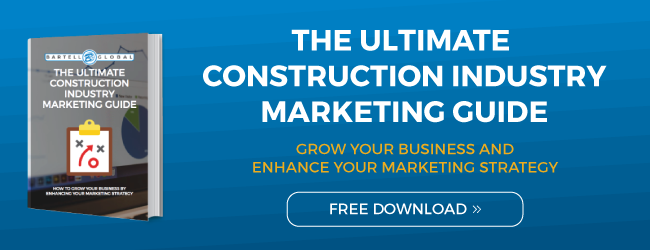Sales can be a tricky, especially in an industry like construction and surface preparation where the equipment or services you’re selling, are often quite expensive, and the competition is aggressive. Some people think selling is easy, and although it may come more naturally to some, it requires quite a bit of thought and the proper execution.
I’m sure you can think of a time when you felt harassed or annoyed by a sales person, or maybe you felt like they weren’t as helpful as you had hoped, and you were left with unanswered questions. Without the proper understanding or training, it’s easy to unintentionally self-sabotage your sales pitch with a potential customer, leaving you feeling discouraged and frustrated, and out of a sale.
Whether you are new to a sales role, struggling with the sales process, or training your sales team to be more efficient in their sales approach, we’ve put together a few tips to keep in mind to help you be more effective on your sales calls.
1) Know What You’re Selling
Learn everything you possibly can about what you’re selling. The better you know the equipment, products or services, the more helpful you’ll be when the potential customer is asking questions. It will also build confidence, and a confident sales person, is a successful one.
2) Believe in the Product and the Company
Get on board with the company’s vision. If you believe in what they’re doing and you believe that what you're selling will be a benefit to those buying them, you’ll feel more confident and sure when entering into conversations with potential customers. It is incredibly difficult to sell something you don’t believe to be a quality product or service, especially for a company that you don’t mesh well with. As a company owner, evaluate your vision and purpose. Make sure that it is easily explainable, so your team can all be on the same page, and focused on the same vision.
3) Plan
As a sale person, planning your day is very helpful. Knowing who you’re going to see, what the possible conversations are going to be, and rehearsing them, will help you to prepare for the possible questions you’ll be faced with. The more experience you have the easier this will become. Make sure to keep a mental, or written note of common questions you’re asked, or concerns you come across in the industry so you can have a well thought out answer.
4) Research and Qualify
- 1. Research your industry. Know your competitors and what they’re doing. You can pick up on what others are doing that is successful and what might not be.
- If you’ve received an inquiry, make sure you research as much as you can about the potential customer. What company are they from? Are they a Rental House, a Dealer or a Contractor? How big is their business? What type of jobs do they normally do? Etc.
- What we mean by “Qualify” is, find out if the person you’re talking to is a decision maker. Are they the person that is ultimately going to have the final say on whether they purchase what you’re selling? Qualify them as a legitimate potential lead. If they aren’t, find out who is. It’s important to have a relationship the employees in a company you’re selling to, to build rapport as well as brand ambassadors, but it’s important to have intentional conversations with the decision makers when it comes to selling. They are the ones that are making the final decision. If you don’t make the right conversations happen with the right people, you may end up losing a sale to someone else who did.
5) Consultative Selling
- Build the relationship with your potential customer, and their employees. Find common interests, talk about sports, listen to their stories about their hobbies or family, anything to get them talking and feeling more comfortable around you. If they know and feel like you are invested in the relationship, they will be more comfortable about making a purchase.
- This is a more conversational approach to selling. Make sure to remeber it is a two way converstation and not just you talking at them. Have honest and open conversations with your client about their needs and challenges and how you, your equipment, product or service may be able to solve their challenges, and meet their needs. This also means including them in the solution process. Ask them what they would find helpful and work together to come to a reasonable solution.
6) Closing the sale
Some sales people try to rush this part of the process, but having patience is incredibly important. Don’t be afraid of silence – give your customer the space they need to think and process. Sometimes stepping away and following up later is the best option. It’s important to feel out the situation and understanding what might be too aggressive, but also to know when you’re being jerked around. It’s important to be confident and firm, but also patient and considerate. Again, make sure to include your potential customers in the solution process as much as possible, when they feel like you value the relationship and are inevested in helping them, it will make the closing process a lot smoother.


 By
By 